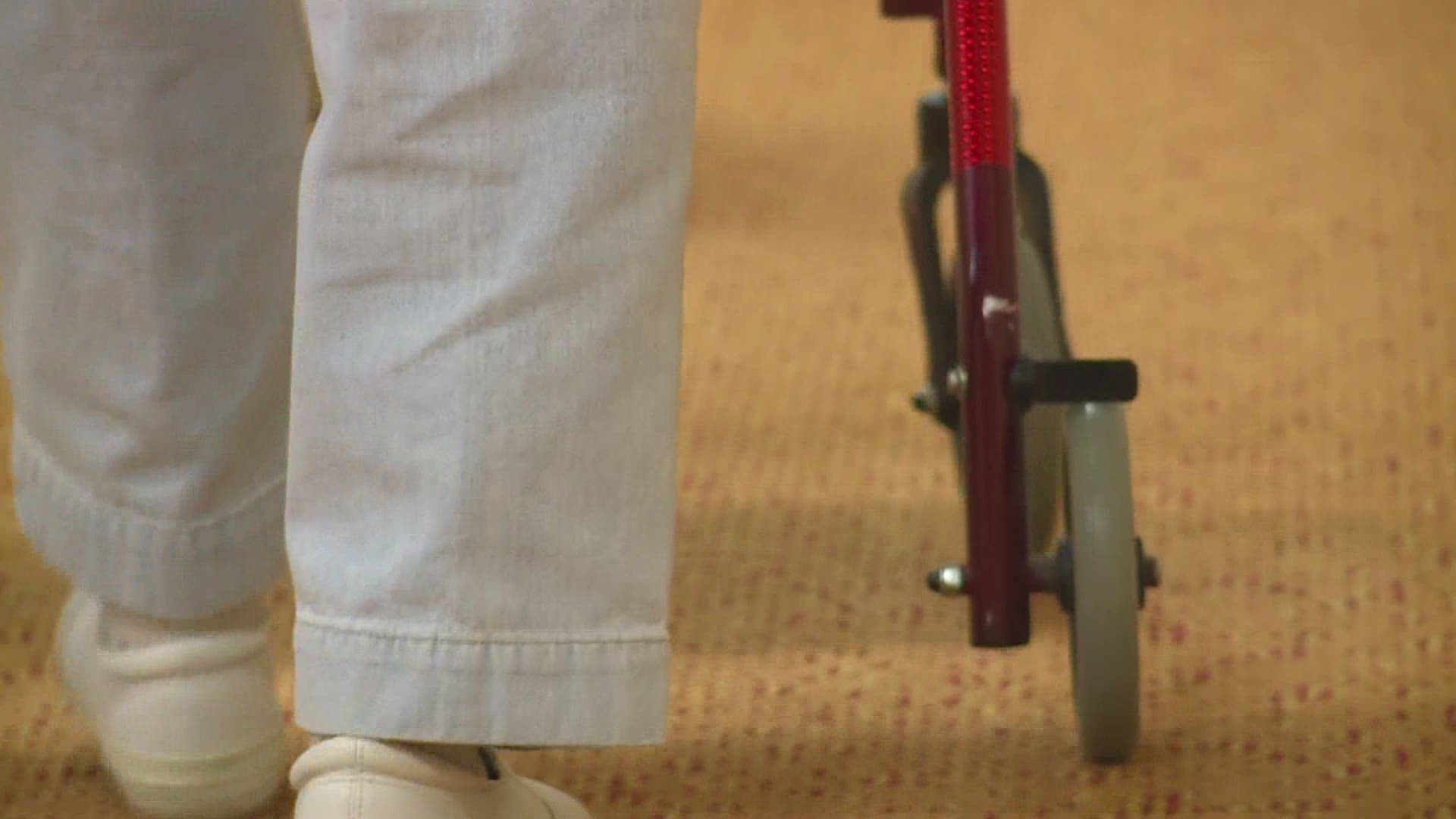There’s optimism in the statewide numbers, but the numbers inside nursing homes continue to get grimmer. The Governor has outlined a reopening strategy and the statewide trend for new hospitalizations is down. That’s all good news. But inside long term care facilities, the numbers are going in a different direction.
Connecticut may have reached its peak. But not Connecticut's long term care facilities.
"Our peak in our industry will be after the hospital peak so my guess is a week or 10 days," said Paul Liistro of Vernon Manor & Manchester Manor Health Care Center.
Despite best isolation practices...COVID-19 is still ramping up in nursing homes. 70% or 150 of the states 215 nursing homes have at least one COVID case. The largest outbreaks are at Riverside Health & Rehab in East Hartford, Abbott Terrace Health Center in Waterbury, and Litchfield Woods in Torrington. When you combine both confirmed and probable COVID-19 deaths, nursing homes account for 55% of the death toll in the state.
And that doesn’t include deaths in assisted living facilities. Deaths there are still not being tracked. But the infections are. Here’s our first look at the most infected assisted living facilities. The Village at Buckland Court in South Windsor, the Waveny Care Center in New Canaan, and The Village at East Farms in Waterbury. In total, there are 558 confirmed COVID cases in assisted living facilities and 140 suspected cases.
You may ask...why 'suspected' and 'probable?' It all goes back to testing. The long term care industry says they need help.
"Residents who are both asymptomatic as well as those who have symptoms. We need to be testing nursing home staff and caregivers and it needs to be accessible to any family members who would like to visit. In order to make the most use of those testing results, they need to be available rapidly," said Allison Kris, a registered nurse and associate professor of nursing at Fairfield University. Rapid, repeated testing is important because a test is only a snapshot of a moment in time.
"With comprehensive testing, we can more effectively cohort residents and keep them together to help them prevent the spread of the disease, and then moving forward we need to start thinking about antibody testing of the nursing home staff," said Kris.
Testing is only 1 of the 3 pillars to getting the long term care facilities on stable ground. Staffing and PPE are the other two. On PPE it comes down to dollars and cents.
"Were all planning for a 90 day supply. 90 days is a goal. How many times have we set a personal goal and not met it? It just makes us a little more anxious and eager to get up the next day or not sleep without pushing the purchase order button," said Liistro. Masks that used to cost 6-cents now cost a dollar and gowns that used to cost 60-cents now cost $6. "It cost us almost $45,000. For 7,000 gowns. That’s an obscene price," remarked Liistro.
And with staff getting sick, the industry needs help.
"We need adequate staffing and we need the continued financial backing of the state of Connecticut to assure for the staffing that we need to win this battle," explained Matt Barrett, the President/CEO of CAHCF. In many cases, hazard pay is being provided to eliminate the need for staff to hold down multiple jobs, risking further spread.
Right now many certified nurses assistant are starting at $35/hour. Licensed practical nurses are getting $50/hour while registered nurses are getting $70/hour.
The industry is also preparing for another wave in the fall. They hope to see more COVID-only dedicated facilities open to making the frail nursing home population less dense. Right now the state has opened four COVID recovery centers, but they are primarily to address hospital surge capacity. And unfortunately for families, until testing, PPE and staffing stabilize, industry experts, tell FOX61, they don’t see relaxing visitor restrictions as being realistic.

